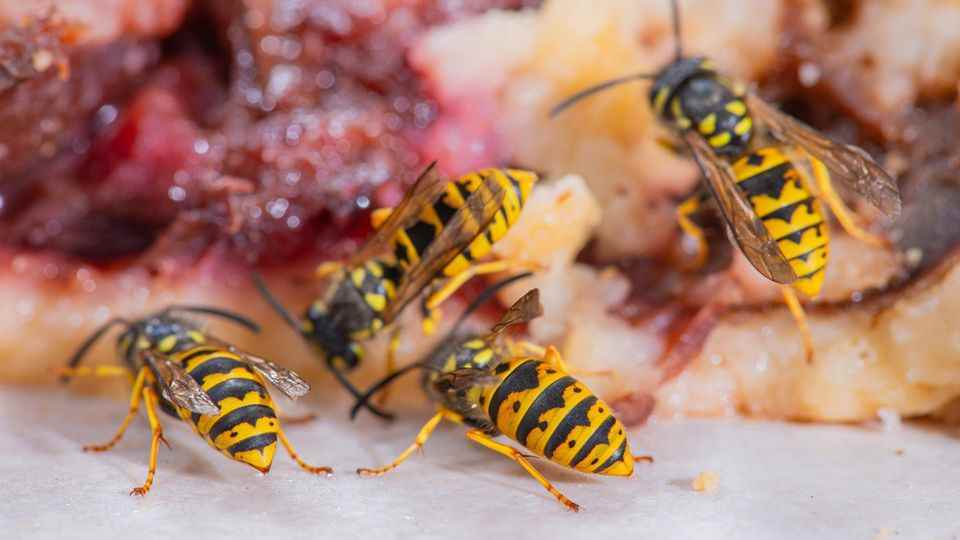wasp free?
What attracts insects and how to prevent it
© igorgeiger / Adobe Stock
Especially in late summer, wasps become increasingly aggressive and we are all the more cautious. Because a wasp sting is something we would like to avoid. But how can we do that? A simple trick can help.
Wasps like to get on our nerves when we eat in a café – and even at home, the small insects end up in our kitchen and buzz around. The painful sting is always only a fraction away and the trajectory of the little creatures seems completely random. But at least in some situations, you can implement a very simple precaution that will keep the insects at bay.
Like moths to the light
Wasps are not only active during the day, they are also automatically attracted to natural and artificial light sources. As a result, a switched-on light can also attract wasps outside of their active phases, since the stimulus ends their resting phase. Ventilating in the dark with open windows is a good tip to keep the insects away from you. As it gets darker, the wasp relies on the light source for navigation. Otherwise she will not find her way back to her nest. However, the sensitivity is much lower compared to mosquitoes, moths or flies. If several wasps suddenly gather around your light at night, this is an indication of a nearby nest. This should then be found during the day and implemented professionally.
Never air out in the morning again?
No, we don’t have to go that far. Although wasps are active during the day, they do not come out immediately with the first rays of the sun. One explanation for this may be that the air is still quite fresh after sunrise – but about an hour after dusk the temperature rises and the number of yellow-black insects increases. Even at twilight, there are usually fewer of them on the move, since they no longer stray too far from their nest with weaker light. An exception are isolated wasps that stand guard for their sleeping nest. Because wasps only sleep in their nest. But they don’t have hours of rest like we humans do. Their sleep is much less intense and the insects are quickly ready for action again in the event of disturbances or danger.

Poor visibility even during the day
The flight behavior of wasps, which often seems strange to us, has a very simple reason: the insects don’t see very well. Their vision is limited and blurred, so they often fly around in a confused manner. In addition, they react to light and also to movement. That’s why we should keep calm when there’s a wasp in the immediate vicinity and not lash out wildly.
By the way, they are natural pest controllers and therefore quite helpful. They eliminate mosquitoes, spiders or moths for us, among other things. In Germany, wasps are also under species protection and may not be killed – and that’s not a good idea either, because the scent of a dead wasp can provide reinforcements from the nest. Not to mention the expensive costs that a:n can face: Between 5,000 and 65,000 euros, depending on the wasp species and federal state. An exception are emergency situations where allergy sufferers are present. Since wasps smell good, there are also odors that they can drive away: for example, lavender is said to be a suitable home remedy as a plant or in the form of a scented oil. You can read here what else can help you against the insects.
Sources used: ungeziefer-pilot.de, ndr.de, praxistipps.focus.de, oekotest.de, bussgeldkatalog.org
